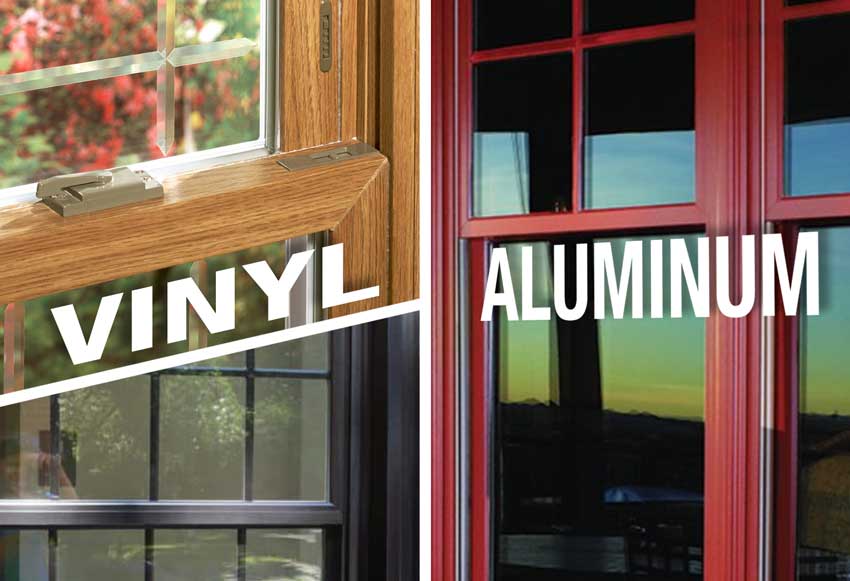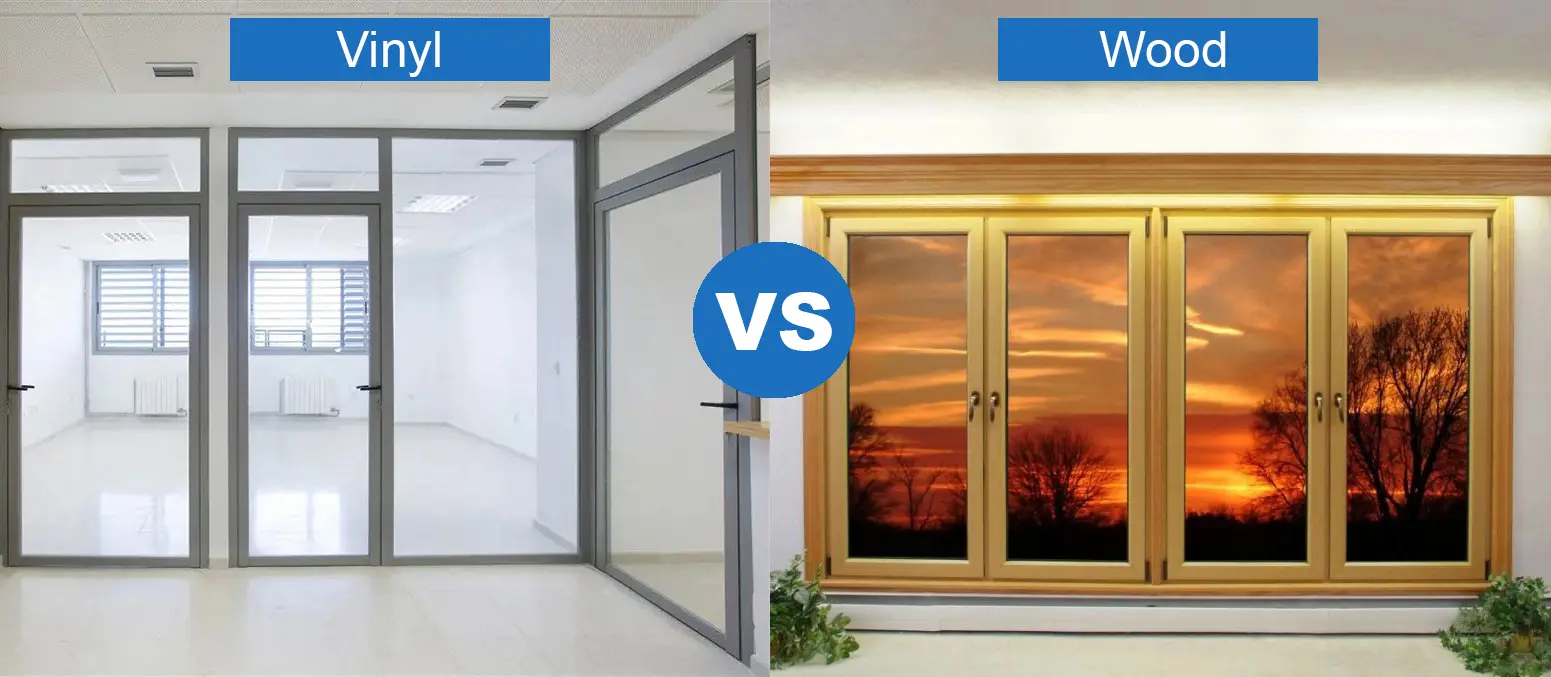Choosing the right windows for your home often involves a decision between vinyl vs. aluminum windows. Evaluating the strengths and weaknesses of each material can help you make an informed choice that aligns with your needs for energy efficiency, durability, cost, and maintenance.
Vinyl Window Comparison
Vinyl windows have surged in popularity due to several compelling advantages. The foremost benefit of vinyl windows is their exceptional energy efficiency. With superior insulation properties, vinyl windows effectively maintain indoor temperatures, keeping your home warm during winter and cool in summer. This efficiency can result in notable savings on energy bills over time.
Another significant advantage of vinyl windows is their minimal maintenance requirements. Unlike wood windows, vinyl does not require painting or staining and is resistant to moisture, rot, and pests. This makes vinyl a hassle-free option for homeowners seeking a low-maintenance solution.
Cost is another area where vinyl windows excel. Typically, vinyl windows are more budget-friendly than aluminum frame windows. This cost-effectiveness, coupled with their energy efficiency and low maintenance, makes vinyl a favored choice among many homeowners.

Aluminum Window Pros and Cons
Despite the benefits of vinyl, aluminum frame windows offer their own set of advantages. One of the key strengths of aluminum windows is their durability. Aluminum is a robust material capable of enduring extreme weather conditions, making it suitable for homes in challenging climates.
Aluminum windows are also known for their sleek, modern appearance. Their slim profiles allow for larger glass areas, providing expansive views. This characteristic makes aluminum windows a popular choice for contemporary homes and commercial buildings.
However, there are notable differences to consider. Aluminum windows generally fall short in energy efficiency compared to vinyl. They are prone to conducting heat and cold, which can lead to higher energy costs. To counter this, many modern aluminum windows feature thermal breaks—insulating materials inserted between the inner and outer frames to reduce heat transfer.
Maintenance is another consideration. Aluminum windows require regular cleaning to prevent corrosion, particularly in coastal regions where salt exposure can be an issue.
Comparing Window Materials: Vinyl vs. Aluminum Windows
When weighing vinyl vs. aluminum windows, it’s essential to evaluate your specific needs and preferences. Vinyl windows stand out for their energy efficiency, making them an excellent choice for those aiming to lower their energy consumption and reduce utility bills. Conversely, aluminum windows offer durability and a modern aesthetic, which might appeal if you prefer a sleek design and a long-lasting solution.
The cost comparison between vinyl and aluminum windows also plays a crucial role. Vinyl windows are generally more affordable, which can be advantageous if you’re replacing multiple windows or working within a tight budget. However, if durability and a modern look are your priorities, and you’re prepared to invest in thermal breaks to enhance energy efficiency, aluminum windows might be worth the investment.

Insulation and Installation Considerations
The insulation properties of vinyl windows are one of their most prominent features. Vinyl’s ability to prevent heat transfer makes it ideal for maintaining a stable indoor climate, particularly beneficial in regions with extreme temperatures, as it helps alleviate the burden on heating and cooling systems.
For aluminum windows, proper installation is crucial to optimizing their performance. This involves using high-quality thermal breaks and ensuring precise sealing to minimize heat transfer and prevent drafts.
Best Material for Windows: Making the Right Choice
Ultimately, selecting the best window material depends on your specific needs, preferences, and budget. If you value energy efficiency, low maintenance, and affordability, vinyl windows may be the optimal choice. However, if durability, modern design, and investing in thermal breaks for improved energy efficiency align with your priorities, aluminum windows could be a better fit.
By understanding the differences between vinyl and aluminum windows and considering factors such as energy efficiency, durability, cost, and maintenance, you can make an informed decision that ensures long-term satisfaction and optimal performance.
Comparison Table
| Feature | Vinyl Windows | Aluminum Windows |
|---|---|---|
| Durability | Good | Excellent |
| Maintenance | Low | Moderate |
| Energy Efficiency | Excellent | Good (with thermal breaks) |
| Cost | Moderate | Higher |
| Aesthetic | Traditional to modern | Sleek and contemporary |


